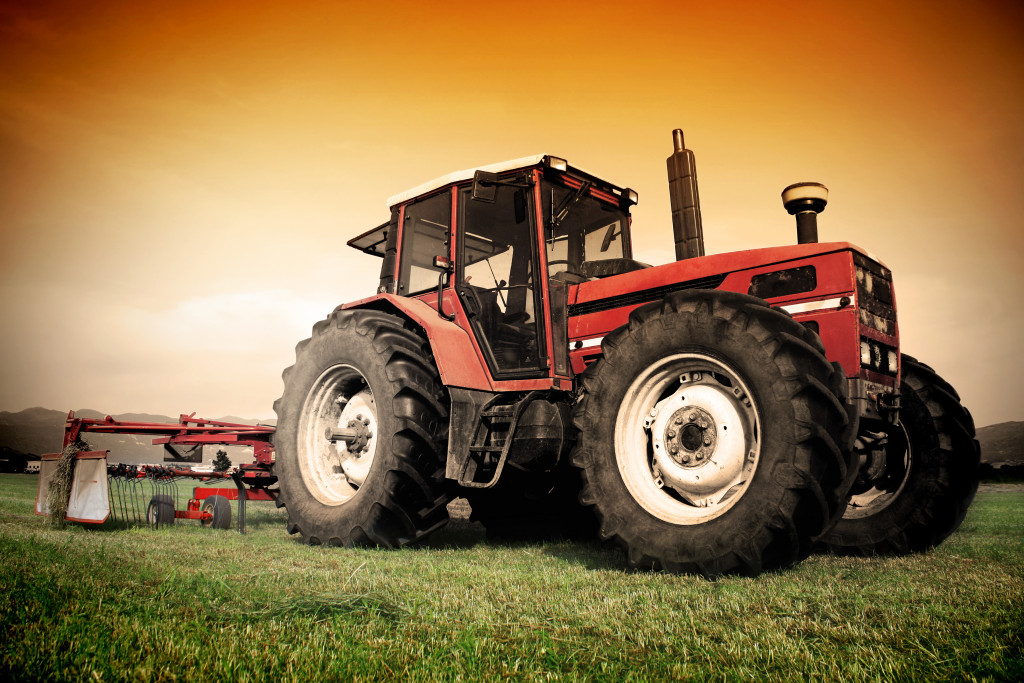The agriculture sector in the United States is fast growing. The industry has contributed over a trillion dollars to the economy, with farming playing a significant role in this success. There are a couple of reasons why the sector is booming. The first reason is that the food industry is also growing.
The food industry took a significant hit during the pandemic. It’s estimated that the industry lost over $100 billion in sales due to the closure of restaurants and other food establishments. However, as the country slowly recovers from the pandemic and more people are vaccinated, the industry is expected to bounce back.
Another reason for the growth in agriculture is a growing demand for locally sourced foods. More and more consumers want to support local farmers and eat fresh, sustainable produce.
The agriculture sector might be booming, but it can still be competitive. You’ll need to follow some of the best practices from successful farms worldwide to succeed in this industry. Here are some of those best practices.
Transportation
How you transport your goods play a huge part in how successful your farm is. You’ll want to ensure that your goods are transported safely and efficiently to local markets or for export. Here are three essential investments you must make to transport your farming goods.
Trailer
A good trailer is something you need if you want to transport your goods to the market manually. Invest in a sturdy, durable trailer that can safely hold your products. It’s also good to have a specific trailer for livestock if you have one. A reliable gooseneck livestock trailer can make a difference if you want to transfer livestock to another farm. They’re also great for transporting live animals to the market or exporting.
Refrigeration
Perishable goods like fruits and vegetables must be kept at the right temperature during transportation. Invest in refrigerated trucks or storage units to keep your goods fresh for extended periods.
Tracking devices
It’s essential to track your shipments, mainly if you’re exporting to other countries. Tracking devices help ensure that your goods are delivered on time and in good condition.

Sustainable practices
Sustainability is becoming increasingly important for consumers and businesses alike. Implementing sustainable farming practices not only helps preserve the environment but can also improve the quality of your products and make your farm more profitable in the long run. Here are three ways to make your farm more sustainable.
Water conservation
Conserving water is crucial in the agriculture industry, especially during droughts. Install drip irrigation and use mulch to reduce water usage in your crops. Utilize rainwater collection systems for your farm’s water needs as well.
Crop rotation
Implementing crop rotation can improve soil health and prevent pests and diseases from affecting your crops. It also helps maintain a balance of nutrients in the soil, leading to healthier plants and better yields.
Organic farming methods
Organic farming methods, such as natural pest control, can benefit the environment and produce higher-quality produce. This can make your products more appealing to consumers looking for organic options.
Invest in Technology
Technology can significantly improve the efficiency and productivity of your farm. Here are three technologies that successful farms have invested in.
Automated equipment
Investing in automated equipment such as tractors or harvesters can save time and labor costs on the farm. It can also improve the accuracy and consistency of tasks such as planting or harvesting.
Precision agriculture
Precision agriculture utilizes technology to gather data on soil quality, weather patterns, and crop growth. This allows farmers to make informed decisions about their crops, leading to higher yields and better resource management.
Crop monitoring technology
Monitoring technologies such as drones or satellite imagery can be used to track the growth and health of crops, detect potential problems, and optimize irrigation and fertilizer usage.
Proper financial planning and management
Managing your farm’s finances is essential for success in the industry. Here are three tips for proper financial planning and management
Create a budget
Creating a budget and setting goals can help you effectively allocate your resources and make informed decisions about expenses.
Seek professional advice
Consulting with a financial advisor or accountant can help you create a solid financial plan for your farm, including strategies for investment and growth.
Diversify income sources
Consider diversifying your income by implementing agritourism practices or selling products directly to consumers through farmers’ markets or a roadside stand. This can help mitigate potential losses from fluctuations in crop prices or bad harvests.
Farming can be a rewarding and profitable career, but staying updated on industry best practices and trends is essential. Implementing these tips can set your farm up for success in the long run.
